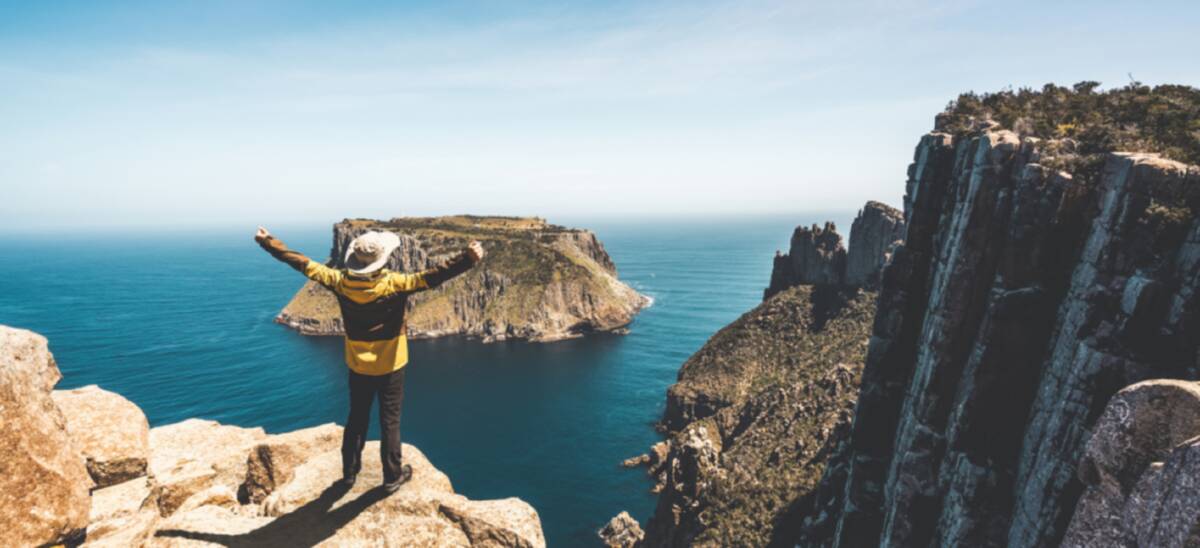
The COVID-19 pandemic has devastated the global economy and many industries, but relatively speaking, Tasmania has done well.
Subscribe now for unlimited access.
or signup to continue reading
We have not had a community case since May 2020.
We are able to move around, and many aspects of our social and economic life are normal.
Our economy is the most robust in the country.
Australians from other states are looking to us, and some are even contemplating moving here.
Tasmania has a moat, and we are using it.
We have kept ourselves safe.
But this is not sustainable economically, for our own wellbeing and for community development.
Tourism businesses and employees are suffering more than when the pandemic began, in the absence of JobKeeper and JobSeeker.
However, while tourism has ground to a halt and this has caused much suffering, it has given Tasmanians time to consider.
When the drawbridge comes down and tourists return, what do we want tourism to look like?
The symbiotic relationship between the visitor economy and the community goes both ways. As we come out of being locked in, we should find a day to celebrate how we have come together. Tourism is not just for visitors, and locals must appreciate the amenities, facilities and opportunities that they have access because of tourism.
When tourism resumes, we need to consider a number of things.
The first is who we attract.
In the months during the pandemic some tourism businesses recorded historical growth from domestic tourists.
But now, visitors from NSW and Victoria are shut out again and the industry is suffering.
This shows that we were largely dependent on interstate visitors in the tourism industry from just a few source markets on the mainland.
In normal times, many of these Australians travel overseas instead of domestically.
So, without shutting national borders, how can Tasmania be the destination of choice, so that our mainland Australian holiday-makers prefer to visit us instead of going overseas?
Right before COVID, visitor numbers from China and Hong Kong dropped.
The COVID pandemic masked this decline.
Fortunately there are many other international markets that we can tap into.
We want more interstate visitors, and we also want to seek greater opportunities internationally.
Direct access to our overseas markets is essential.
Such direct overseas connections must be a priority if we want to diversify and enhance our visitor economy.
In addition to our markets, we also have to consider the community impacts of tourism.
Some Tasmanians may argue that tourism brings them little or no benefits, but, while we may not be employed in the industry, we learned during the lockdown of 2020 that when people travel, goods travel with them.
We receive our cargo, parcels and letters more quickly when we have a thriving tourism industry.
Moreover without visitors, many of our fine restaurants, cultural institutions and parks will not be sustained.
Our quality of life will drop.
The COVID pandemic has also taught us that tourism can enhance our sense of wellbeing.
Many of us have made ourselves at home around the state, but many are ready to hop onto a plane and go on a trip elsewhere.
A variety of travel experiences is important for our wellbeing as travelling elsewhere allows us to disentangle ourselves from our daily lives.
We get a break from the mundane.
If we are to keep people out, we are also locking ourselves in.
One of the most important lessons from this pandemic is how Tasmanians have rallied around the tourism industry.
People travel around, partly thanks to the travel voucher schemes, and partly because those who can afford to want to help.
Tasmania has come together.
There is much goodwill built between the community and the industry. Let us not forget that when tourism returns.
The symbiotic relationship between the visitor economy and the community goes both ways.
As we come out of being locked in, we should find a day to celebrate how we have come together.
Tourism is not just for visitors, and locals must appreciate the amenities, facilities and opportunities that they have access to because of tourism.
Moving from a COVID-zero to a COVID-tolerant situation is a huge psychological hurdle for us. It is time for us to prepare for the hurdle.
When we get over that, let us take some positive lessons from the pandemic.
We do not want to be wholly dependent on tourism; tourism should always be one part of a diversified economy.
If this is the case, shocks such as pandemics are lessened.
And just as importantly, we all should welcome a tourism industry that serves the community, and a community that appreciates tourism.
- Professor Can-Seng Ooi and Associate Professor Anne Hardy are experts in tourism at the University of Tasmania, and are co-directors of the Tourism Research and Education Network (TRENd). This article was written as part of a series to mark Social Sciences Week.













